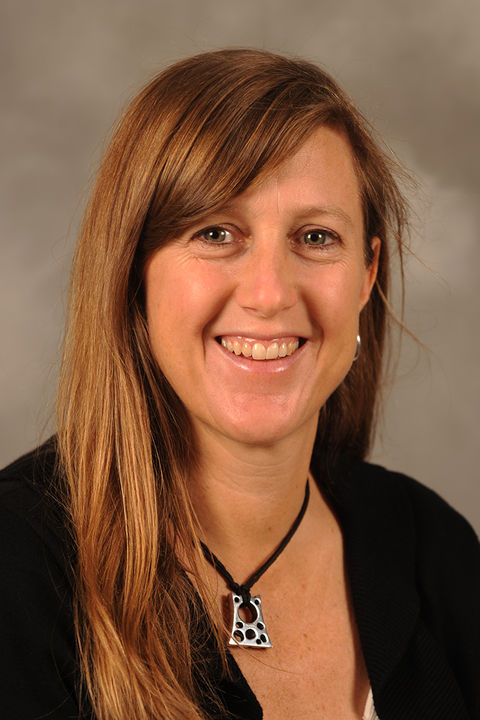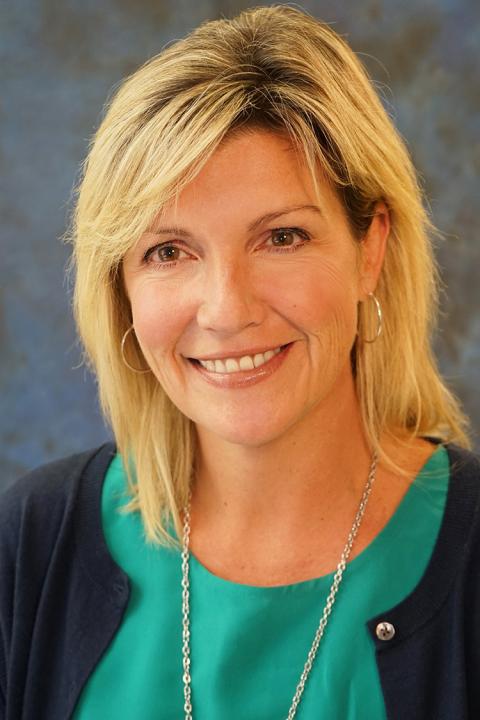Family Nurse Practitioner
Â鶹ӰԺ State's Family Nurse Practitioner (FNP) master's degree concentration will prepare you to provide comprehensive primary health care in an outpatient setting for patients of all ages.
Family Nurse Practitioner students acquire advanced practice nursing competencies to provide continuity of health care to persons across the life span and to maximize the effectiveness of community and health care system services through collaboration with other health professionals.
Family NPs provide primary health care to children, adolescents, adults, and older adults in many outpatient settings. They offer preventive health services and health education, as well as manage acute and chronic diseases. FNPs play a vital role in addressing the national shortage of primary care providers.
Clinical experiences are offered in a variety of ambulatory care settings and specialty clinics in primary care offices including family practice, internal medicine, managed care offices, long-term care facilities, and academic and occupational health settings.
Why Â鶹ӰԺ State?
- Faculty mentorship and advising from board-certified advanced practice nurses with decades of experience.
- Hybrid program featuring both online and face-to-face courses.
- Full- and part-time academic plans so you can complete the program in as few as 2 years or continue working and finish in 3 years.
- Clinical experiences that foster development of clinical judgment and primary care skills that cover pediatric, adolescent, young and older adult populations.
- A program that is known for its academic rigor and clinical quality.
Post-Master's Certificate
We also offer a Family Nurse Practitioner post-master's certificate for nurses who already hold a Master's degree or higher in nursing.
Learn more about the Family NP post-master's certificate
Meet the Faculty
Learn more about the Family NP course instructors:

Louise Knox
DNP, RN, FNP-BC
Coordinator & Associate Professor

Marilyn Nibling
DNP, APRN, NNP-BC, PNP-BC
Assistant Professor

Lisa Onesko
DNP, APRN-BC
DNP Program Director & Professor

Denise Pacholski
DNP, APRN, NP-C
Associate Lecturer
Accreditation
Proudly CCNE Accredited
The MSN, DNP, and Post-graduate APRN certificates at Â鶹ӰԺ State are accredited by the Commission on Collegiate Nursing Education†. Â鶹ӰԺ is accredited by the Higher Learning Commission and is a member of the North Central Association of Colleges and Schools.
Â鶹ӰԺ State: An NLN Center of Excellence
Â鶹ӰԺ is a three-time designated Center of Excellence in Nursing Education by the National League for Nursing (2013-2017, 2017-2022, 2022-2026). We are recognized in the "Advancing the Science of Nursing Education" category for our dedication to innovative and evidence-based nursing education.
The baccalaureate degree program in nursing, master’s degree program in nursing, Doctor of Nursing Practice program, and post-graduate APRN certificate program at Â鶹ӰԺ are accredited by the Commission on Collegiate Nursing Education, 655 K Street, NW, Suite 750, Washington, DC 20001, 202-887-6791. Â鶹ӰԺ College of Nursing is accredited by the Commission on Collegiate Nursing Education. Advanced Practice Registered Nurse (APRN) concentrations within the Master of Science in Nursing (MSN) program and APRN Certificates, along with the Bachelor of Science in Nursing to Doctor of Nursing Practice (BSN-to-DNP) program qualify graduates to sit for national APRN certification and APRN licensure in Ohio. States other than Ohio may have additional requirements to apply for or obtain an APRN license, including but not limited to specific state examinations, letters of recommendation, or proof of completion of an accredited nursing program. The College of Nursing is in the process of collecting information from all states and has not yet made a determination whether graduates from the Â鶹ӰԺ College of Nursing MSN, Certificate, and BSN-to-DNP programs meet the requirements for APRN licensure outside the state of Ohio.

